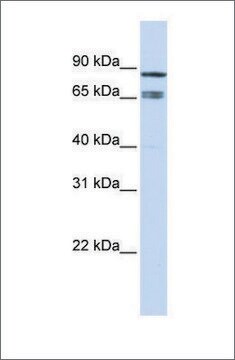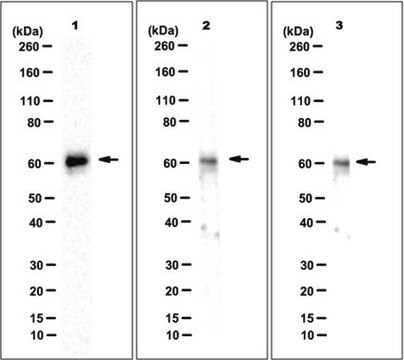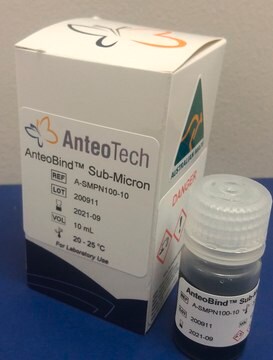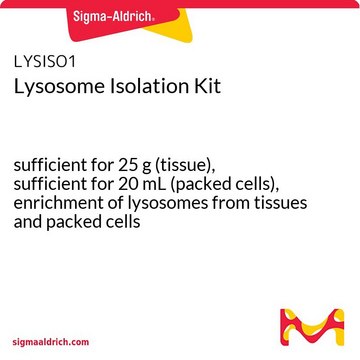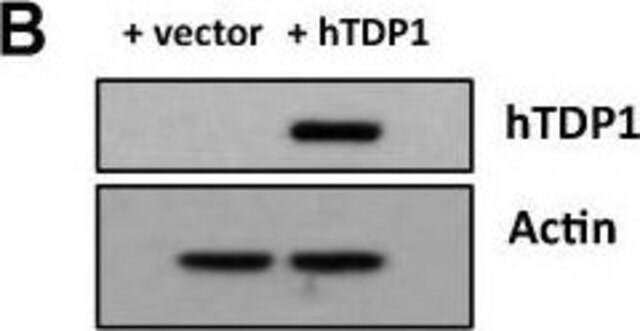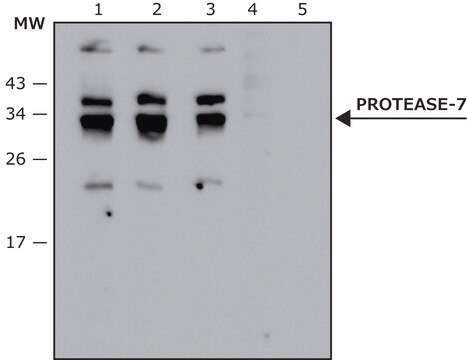SAB4200366
Anti-IKZF1/IKAROS antibody, Mouse monoclonal
clone E1.14, purified from hybridoma cell culture
Sinónimos:
Anti-Hs.54452, Anti-IK1, Anti-IKAROS family zinc finger 1, Anti-LYF1, Anti-PRO0758, Anti-ZNFN1A1, Anti-hIk-1
About This Item
Productos recomendados
origen biológico
mouse
Nivel de calidad
conjugado
unconjugated
forma del anticuerpo
purified from hybridoma cell culture
tipo de anticuerpo
primary antibodies
clon
E1.14, monoclonal
Formulario
buffered aqueous solution
mol peso
antigen ~55 kDa
reactividad de especies
rat, monkey, human, mouse
concentración
~1.0 mg/mL
técnicas
flow cytometry: suitable
immunocytochemistry: 0.25-0.5 μg/mL using Jurkat cells
indirect immunofluorescence: suitable
western blot: 0.25-0.5 μg/mL using Ramos cells
isotipo
IgG2b
Nº de acceso UniProt
Condiciones de envío
dry ice
temp. de almacenamiento
−20°C
modificación del objetivo postraduccional
unmodified
Información sobre el gen
human ... IKZF1(10320)
Categorías relacionadas
Descripción general
Inmunógeno
Aplicación
- immunoblotting
- immunofluorescence
- immunohistochemistry
- flow cytometry
Acciones bioquímicas o fisiológicas
Forma física
Cláusula de descargo de responsabilidad
¿No encuentra el producto adecuado?
Pruebe nuestro Herramienta de selección de productos.
Código de clase de almacenamiento
10 - Combustible liquids
Punto de inflamabilidad (°F)
Not applicable
Punto de inflamabilidad (°C)
Not applicable
Elija entre una de las versiones más recientes:
Certificados de análisis (COA)
¿No ve la versión correcta?
Si necesita una versión concreta, puede buscar un certificado específico por el número de lote.
¿Ya tiene este producto?
Encuentre la documentación para los productos que ha comprado recientemente en la Biblioteca de documentos.
Global Trade Item Number
| Número de referencia del producto (SKU) | GTIN |
|---|---|
| SAB4200366-200UL | 4061837795473 |
Nuestro equipo de científicos tiene experiencia en todas las áreas de investigación: Ciencias de la vida, Ciencia de los materiales, Síntesis química, Cromatografía, Analítica y muchas otras.
Póngase en contacto con el Servicio técnico